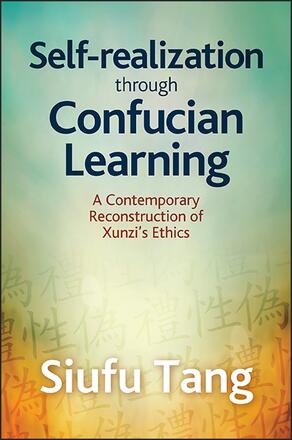
Self-Realization through Confucian Learning
A Contemporary Reconstruction of Xunzi's Ethics
Alternative formats available from:
Confucian philosopher Xunzi’s moral thought is considered in light of the modern focus on self-realization.
Description
Self-Realization through Confucian Learning reconstructs Confucian thinker Xunzi's moral philosophy in response to the modern focus on self-realization. Xunzi (born around 310 BCE) claims that human xing ("nature" or "native conditions") is without an ethical framework and has a tendency to dominate, leading to bad judgments and bad behavior. Confucian ritual propriety (li) is needed to transform these human native conditions. Through li, people become self-directing: in control of feelings and desires and in command of their own lives. Siufu Tang explicates Xunzi's understanding of the hierarchical structure of human agency to articulate why and how li is essential to self-realization. Ritual propriety also structures relationships to make a harmonious communal life possible. Tang's focus on self-realization highlights how Confucianism can address the individual as well as the communal and serve as a philosophy for contemporary times.
Siufu Tang is Associate Professor in the School of Chinese at the University of Hong Kong.
Reviews
"This succinct work will appeal to Chinese scholars with a primary interest in moral philosophy." — China Review International